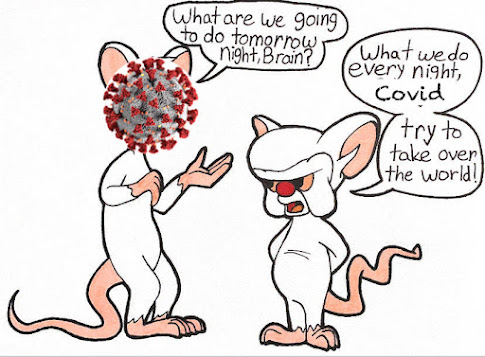Does everyone else picture Andy Samberg when they read about Pirola too?? Isn't everyone reading about the hot new variant, Pirola (BA.2.86/JN.1), these days??
A kidney doctor online says he's baffled that anyone would care about this new variant because if you think Covid isn't over, then you'll continue masking. And if you think that it's all a hoax, you'll just ignore it and end up in hospital. But he's forgetting about the huge group in the middle. There are many people who vax and relax, and they need to know that the vaccine barely touches this new variant because it's so different from previous strains. And there are many others with a mix of pro/anti-mask attitudes in their home or extended family, and this provides one more reason to rely on N95s as well as (or instead of if necessary) vaccines. People need to be informed about changing risk as it changes!!







